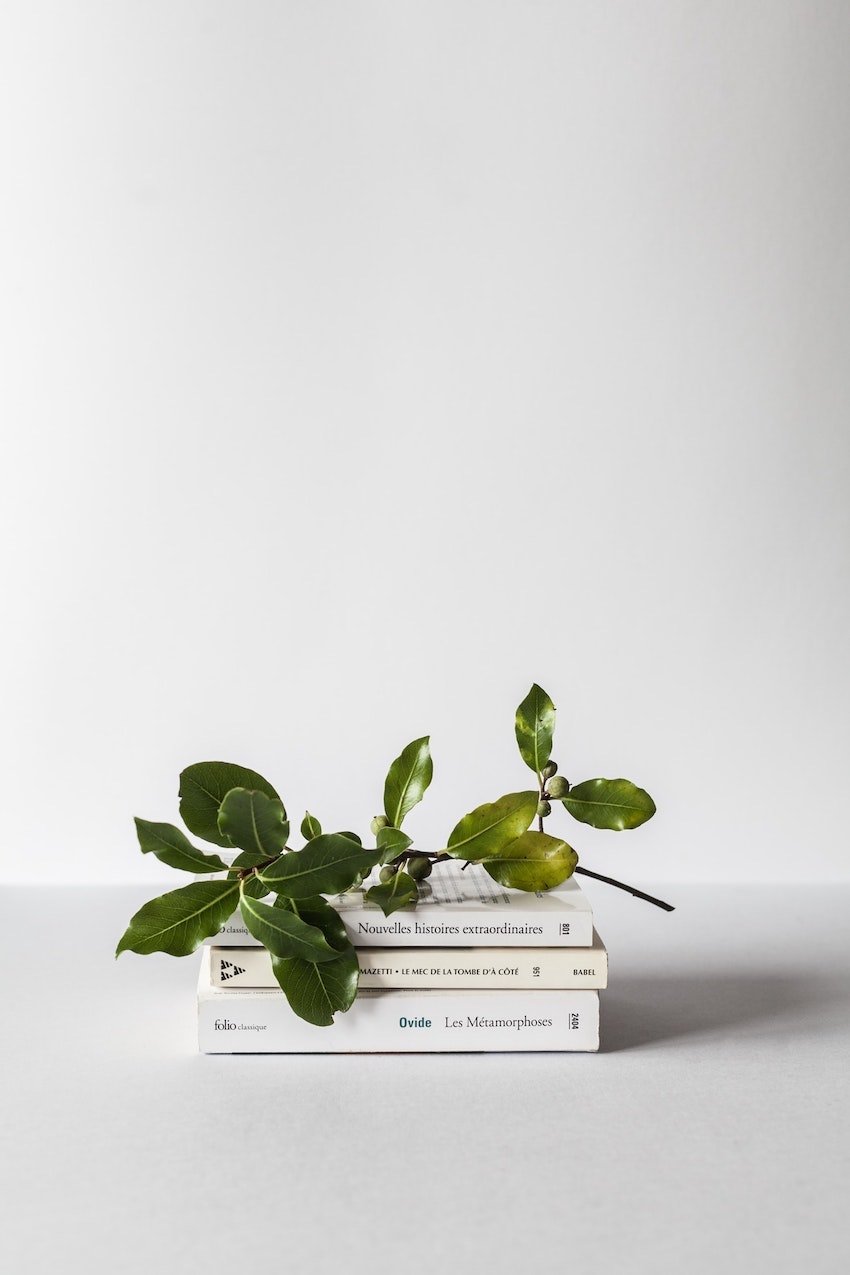find your alternative: 10 simple ways to live more sustainably
written by Magali, founder of Alternative
There are 7.5 billion people on this planet and it needs our help! We all need to make small changes. Small changes are what will rescue the planet.
If one person, for example, gets a plastic bag at the grocery store, then sure, one person uses a plastic bag. “It’s just one bag”. You can find ways to reuse it; use it as a compost/garbage bag, pick up your dogs poop, etc. But what happens when 100 people come to the grocery store and each use a plastic bag? 1000? It’s not just one bag anymore. It ends up being 80% of ocean waste. It’s what 100,000 marine animals are killed by annually.
We have to remember that the “out of sight, out of mind” shouldn’t be a part of our mentality if we are to save the planet.
We are all part of a cycle but the cycle will break by making small changes. So, here are some simple ways you can begin to live more sustainably.
1. learn to say no
Say no to straws, say no to samples, say no to plastic bags, say no to printed receipts (unless you really need it, opt instead for email receipts), say no to paper towels in public bathrooms. Say no to anything that might have waste or result in waste.
Just by saying ‘no’, you’re standing up for Mother Earth and reducing the waste you normally would create. Companies will see that consumers are looking to reduce their waste and might change the way they operate their business.
2. know your RRRs
Reduce, reuse, recycle. The order of this mnemonic is important. Reduce your initial waste. Reduce purchasing waste in the first place to even avoid the whole hierarchy.
Before throwing away or donating, try to reuse it. Craft your way through saving your item.
Turn an old water bottle into a flower pot, or craft reusable napkins out of old t-shirts.
The final step of an item’s lifespan should be to recycle. If you really can’t reuse your item, make sure to check your local city’s recycling guide for it to properly be recycled!
3. your first thought should always be second-hand
Every year, 9% of textiles make up of the planet’s waste. That’s a lot!
“While 95% of used textiles can be recycled, 85% land in the trash”. 17 billion pounds of furniture is annually thrown away. Almost everything I own is second handed from clothes, to kitchenware, to bathroom, to furniture!
Before thinking about buying something new, always hit the thrift stores, check Facebook Marketplace, search for the item on sites like Bunz, or Craigslist, or check whatever local second-hand business is in your city. You could also set up a trade with some friends and family before donating to your local thrift shop!
4. learn to grocery shop zero waste
By reducing waste in your food routine, you’re cutting down a large amount of your consistent waste. Learn to avoid plastic in the grocery store.
Try looking for a local farmer’s market or a small business grocery store. Bring your own tote bag and produce bag (15 billion plastic bags are used every year in Canada!
By bringing in your your own tote and produce bags, you’re reducing that waste by a ton). If you don’t have any produce bags, to hold them in your basket/cart, that’s ok too. Use an old t-shirt, make use of an old sock, have a separate tote bag for the fruit, or go back to basics: just have them free roaming in your basket/cart.
Take a banana that has been separated from its group, take the slightly uglier apple, buy the weirdly shaped potato that nobody might buy. Instead of it going to the trash, it’ll go in your tummy.
5. reduce food waste
Speaking of food waste when grocery shopping, take a mental note of how much you’re buying. Every Canadian, on average, tosses away 170 kilograms of food a year.
Buy the food you need every week or two and learn to use it up first instead. Food waste is a huge issue globally; about a third of all food produced is wasted.
Food to trash has a journey too: the energy the farmer uses to grow the food, the journey it took to get to the grocery store, the electricity it used to stay in your fridge, only to be thrown out in a bin to a garbage truck. Everything has a cycle! Look at how you can reduce what you’re bringing in, so less is going out.
6. compost
This seems like it would be a simple change but it makes a huge difference! “75-80% of all household trash is organic matter that can be composted and turned into soils”.
Check your city for composting regulations and for info on what can go in the compost. If you’re freaked out by the smell, throw it in the fridge! I have a small box with a compost bag and it has a dedicated home in my fridge.
p.s. I wouldn’t recommend the freezer because once thawed, you do not want to smell that. I am telling you this through experience. Trust me.
7. learn how to make your period zero waste
This is for all the menstruating humans out there! Yes, you can make your period sustainable. I haven’t made a single spec of waste for the past three years with my period!
90% of pads are plastic and since they’re personal hygiene items, they go straight to the landfill. Using only period products, on average a woman will menstruate for 38 years a totalling up 62,000 pounds of trash in the landfill. Opt instead for menstrual cups, organic cotton pads, and period panties.
There are so many options out there: menstrual cups for all different shapes and sizes and widths, an endless amount of cotton pads and panties along with different shapes, colours, thickness, and flips and flaps for each ‘menstruater’. Find an option that works for you.
8. opt for alternatives
As I always say, there is always an alternative! Opt for second hand items or try to craft what you’re looking for out of items you already have.
Look around in your house and find alternatives for them. Switch out your plastic toothbrush for a bamboo toothbrush. Use cotton sandwich bags instead of plastic sealed bags. If you can, grow your own fruits and vegetables instead of purchasing them from the grocery store. Buy milk in glass bottles.
Use your imagination, you don’t need to abide the rules! Create your own methods that work for your home and your lifestyle.
9. use what you already have
Always use what you already have first! Rule number one, or in this case, nine. If you already have a ton of ziplock bags and kitchen utensils, do not throw them out!!!
Use what you already have and avoid purchasing new items. When you do need to purchase something, opt for second hand items. Don’t change everything in your life just to have bamboo utensils. Remember it’s not a trend, it’s a lifestyle.
10. take your time, do your research
Good things always take time. Remember that zero waste isn’t a trend you keep for two weeks before switching back to your old routine. Zero waste is a lifestyle. It takes time and even now, I’m learning new things every day to reduce my own waste. Do your research and motivate yourself to keep going, discover new ways of changing your life and others, and recognize the difference you’re making in the world by making small changes!
final thoughts
I hope these tips help you out and don’t shift your life too much. And I also hope they inspire you to keep changing things in your life. Follow me on Instagram @findyouralternative to read my previous posts and catch up on zero waste info. If you have any questions or any comments you’d like to talk about, don’t ever hesitate to DM me. ☺ See you there!
sources
Sustainable Bliss Collective endorses products & brands we genuinely love and support. If you end up making a purchase through one of our affiliate links, it will not cost you anything but we may earn a commission. Learn more here.
share this on Pinterest
about the author
Hey there, my name is Magali and I’m the founder of Alternative. I’m a designer and a passionate advocate for sustainability. I started this blog two years ago and slowly switched my lifestyle to be more sustainable. My goal is to help everybody find their own Alternative; what works for me might not work for you, but there’s always a solution. There’s always an Alternative! Join me on this journey and try greening up your life by switching to a zero waste lifestyle.
Follow & connect on Instagram @findyouralternative






